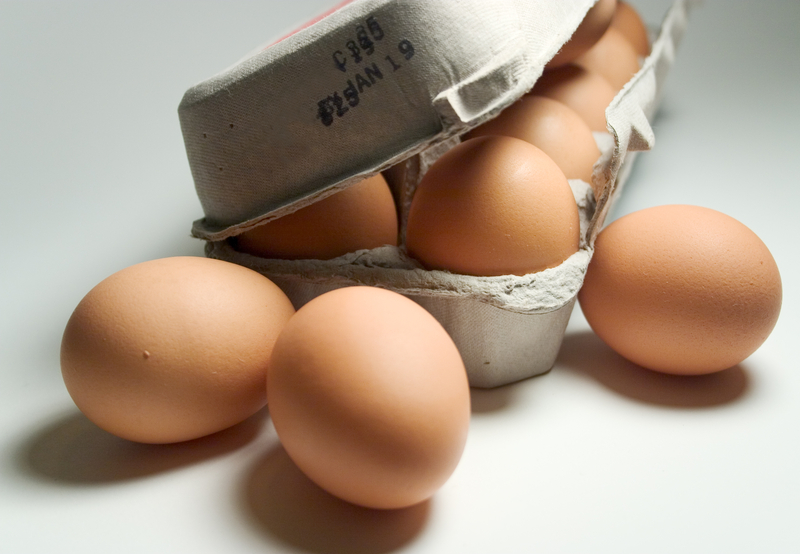What Foods Can We Eat Past Their Expiration? Find Out Now

I’m pretty sure we’ve all been there…we get a craving and head into the kitchen in search of our favorite food. But as we reach to get it off the shelf, we catch a glimpse of the expiration date and strain to ensure we are reading the year correctly. Then we second guess ourselves as to what year we are in.
Womp. Womp. Womp.
Show of hands—how many:
- Would dive right in, throwing caution to the wind without a second thought?
- Would immediately toss it?
- Open it up to check it out, perform the smell test, then try one bite to see if it’s rancid?
I remember hearing a rumor once that Spam never expires. Is this true? I have never tried Spam, and no offense to those who are fans, but any mystery meat that has an indefinite shelf life leaves me doubting that it’s ever safe for human consumption.
Speaking of mystery meat, what’s the deal with the McDonald’s hamburgers? Sorry. I’m getting a little off track… Let’s get back to it.
There are some foods that are relatively safe to consume past their expiration dates. I consider myself somewhat frugal and don’t ever like to throw anything away, so I often have things lurking in my kitchen that are close to growing legs and walking away.
Foods You Can Eat Past The Expiration Date
Pantry Staples
Let me preface this by stating that the information I am about to throw down pertains to unopened foods. For example, we all know that if you have children and you open a box of cereal, there is a slim to none chance they will seal the bag back properly, let alone shut the box. Just saying. That being said, if you have a box of cereal that is unopened, you can safely consume this for six to eight months past the expiration date on the box. Truth be told, from a “safety” standpoint, an opened box of cereal will probably still be edible for longer, but it may taste pretty stale.
Along these lines, dry pasta will be safe to consume roughly one to two years past its expiration date. Cooked pasta doesn’t fare as well; in fact, that should be tossed three to five days after cooking. But even if you won’t be eating it right away, when you see a deal on pasta, go ahead and snag a few boxes.
Refrigerator Staples
I always found it odd that folks ran out to buy extra milk and bread when fear of any inclement weather was forecast. These are two foods that always come printed with an expiration date that’s relatively soon after purchase. However, both are usually good anywhere from seven to ten days past their expiration, provided they are stored properly—even after they’ve been opened.
Bread is pretty obvious as it will begin to grow mold. Milk isn’t as obvious until you pop the cap off. You will know instantly by the smell if it is safe to consume. (You know what I am talking about.)
Believe it or not, eggs can be consumed roughly three to four weeks past their expiration date. If you are able to get fresh eggs that have not been washed and packaged, you can keep fresh eggs at room temperature for several months. (Once washed, however, they should be immediately stored in the fridge.)
Frozen Meats and Seafood
Please notice I said frozen and not raw. Raw meat and seafood should generally be used before the expiration date, and you can usually tell just by looking at it or feeling it when it’s passed its prime. Once frozen, ground beef can last three or four months past the expiration date, seafood can last six to nine months past the expiration date, and chicken and turkey can go up to a year.
Frozen Fruits and Veggies
Provided they aren’t freezer burned, frozen fruits and vegetables can last upwards of one to two years. And some would argue that they can be healthier than fresh options depending on the variety and how you are using them.
Canned Goods and Condiments
One would assume canned goods are a relatively safe bet. Not exactly. These can typically only be used one to two years past their expiration; however, canned goods that are acidic (e.g., tomatoes), I personally would be a little leery of.
The same goes for three of the condiments we always have on hand in my house: ketchup, mustard, and peanut butter. As long as they aren’t opened yet, they can last upwards of a year beyond the expiration date.
Are There Forever Foods?
Are there any foods you can keep around forever? You would be surprised at what research has uncovered.
I am just going to get this one out of the way because I know you are all wondering. Hard Alcohol. This stuff lasts forever. (Although I am not sure how long that bottle of water in my parent’s liquor cabinet lasted, or the exact moment when they discovered I had replaced their vodka one summer before graduation.)
Rice. If stored properly, rice can last forever. It can also fix your waterlogged electronics, but that’s for another article.
Sugar and salt can last almost indefinitely. Sugar cannot support microbial growth, and salt, well, salt is salt. So, this makes it a mineral, which cannot spoil. Along the lines of sugar, honey is basically all sugar and contains almost no water. If you ever notice your honey begin to crystalize, simply reheat it in a warm water bath (not in the microwave!), and it will go right back to liquid form. Same holds true for real maple syrup.
One of my favorite ingredients/condiments is ACV (apple cider vinegar). Both apple cider vinegar and white vinegar will hold their own for decades. Vinegar contains a low pH and is technically a preserved food.
Dried beans. As long as you store them in a cool, dry location and keep them from getting in contact with water or moisture, dried beans can go the distance.
I would venture to say if you stockpile these foods, you will survive a zombie apocalypse.
If you are curious about a specific food that I didn’t mention, foodsafety.gov has a super cool app you can download here: FoodSaver App
And now that I am thinking about foods expiring, I am curious about how long my leftovers can hang around until they are no longer edible. Stay tuned for what I dig up on that topic soon.




 7 Signs Your Body is Seriously Low on Collagen (not just wrinkles)
7 Signs Your Body is Seriously Low on Collagen (not just wrinkles) Health Expert: "Turmeric Doesn't Work (unless...)"
Health Expert: "Turmeric Doesn't Work (unless...)" 3 Warning Signs Your Probiotic Supplement is a Total Waste
3 Warning Signs Your Probiotic Supplement is a Total Waste

